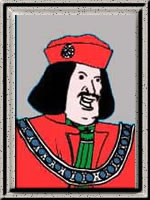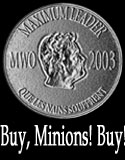Greetings, loyal minions. Your Maximum Leader has been thinking quite a bit about current events lately and decided he had just had enough. So, today he will take you on a little trip through time to a different time and place‚ÄövѬ
United States Senate Hearing Room
March 24, 1943
Testimony before the December 7th Commission.Senator Barkley: So, Mr. Smith do I understand your previous testimony correctly? You claim that on numerous occasions you had face-to-face meetings with Secretary [of War] Stimson and the [Army] Chief of Staff [George Marshall], and during those meetings you tried to tell them that the Imperial Japanese Navy was planning a major attack on the United States?
Mr. Smith: Yes Senator Barkley. During the first six months of President Roosevelt‚ÄövÑv¥s third term, I met frequently with Secretary of War Henry Stimson, Army Chief of Staff George Marshall, Secretary of State [Cordell] Hull, and Secretary of the Navy [Frank] Knox. During that time I tried to impress upon them the urgency of addressing the impending problem posed to our nation by the Japanese. But they were more focused on other matters.
Senator Glass: Mr. Smith, what could be more important than an impending attack on the United States?
Mr. Smith: Well, Senator the world is a complicated place. In my capacity it was incumbent upon me to keep my eyes on as many different threats to the country as I could. It was my opinion at the time that the major threat to our nation was being relegated to a secondary position by the President and his immediate advisors.
Senator Glass: What threat held the primary attention of the President and his advisors during this period? In your opinion Mr. Smith‚ÄövѬ
Mr. Smith: Senator, whenever I would give briefings on the cryptographic intercepts to the President‚ÄövÑv¥s advisors concerning the nature of the Japanese threat; they would always listen attentively, many took notes in fact, and would wait for me to finish. After my prepared briefing remarks about the Japanese were concluded, I would, inevitably, be asked, ‚ÄövÑv Well Rich, what can you tell me about the Nazis?‚ÄövÑvp It struck me as odd that they should be so focused on the German threat, but not interested in the threat from Japan.
Senator Russell: Mr. Smith, I seem to recall from your previous testimony that on one occasion you elicited a reaction of complete surprise from Secretary Stimson after a briefing? Could you tell us more about that please?
Mr. Smith: Of course Senator. As I recall it was late September, 1941, and I had just given Secretaries Stimson and Knox a briefing on the overall security situation in the Pacific basin. Towards the end of the meeting I said to Secretary Stimson that it was my opinion that that we ought to warn the various ship commanders in the Pacific Fleet, or at least Admiral Kimmel, that an attack on the fleet or the territories of the United States by the Japanese was imminent. I recall Secretary Stimson looking at me as if I was speaking in tounges. It was as though he had never heard of Japan‚ÄövѬ
Senator Vandenberg: So, Mr. Smith you are saying that in your capacity as Undersecretary of War for Security Affairs you had decoded secret cryptographic intercepts from the Imperial Japanese Navy that specifically indicated that they would attack the US Pacific Fleet in Pearl Harbor on December 7th, 1941?
Mr. Smith: Well nothing that specific Senator Vandenberg. We had noticed a significant increase in the traffic of coded communications between Tokyo and their overseas missions. Additionally, there was a lot of chatter between Japan‚ÄövÑv¥s Naval Headquarters and their various battle fleets. But cryptographic information is a very difficult source to work with Senator. You only have little snippets of information that you have to analyze and try to understand.
Senator Vandenberg: So really you are saying that you didn‚ÄövÑv¥t know that Pearl Harbor was going to be attacked?
Mr. Smith: I didn‚ÄövÑv¥t know specifically at the time. But if we could have put together the information gathered by the Navy and the Department of State; and if Director Hoover would have let us know about Japanese agents photographing Pearl Harbor, we might have been able to prevent the attack.
Senator Taft: So, Mr. Smith you are saying that we had many pieces of information that in hindsight point towards an attack. But at the time it was impossible to tell what the Japanese were up to?
Mr. Smith: What I am saying Senator is that the American People need to know that their government failed them. Their President and his advisors failed them. I failed them. If they had listened to me, December 7th could have been averted.
Well loyal minions‚ÄövѬ Perhaps a voyage through the time machine wasn‚ÄövÑv¥t such a good idea.
Carry on.


